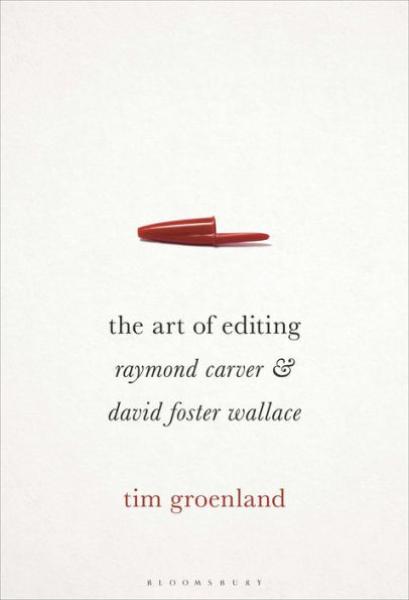Description
The place of the editor in literary production is an ambiguous and often invisible one, requiring close attention to publishing history and (often inaccessible) archival resources to bring it into focus. In The Art of Editing, Tim Groenland shows that the critical tendency to overlook the activities of editors and to focus on the solitary author figure neglects important elements of how literary works are acquired, developed and disseminated.
Focusing on selected works of fiction by Raymond Carver and David Foster Wallace, authors who represent stylistic touchstones for US fiction of recent decades, Groenland presents two case studies of editorial collaboration. Carver's early stories were integral to the emergence of the Minimalist movement in the 1980s, while Wallace's novels marked a generational shift towards a more expansive, maximal mode of narrative. The role of their respective editors, however, is often overlooked. Gordon Lish's part in shaping the form of Carver's early stories remains under-explored; analyses of Wallace's fiction, meanwhile, tend to minimise Michael Pietsch's role from the creation of Infinite Jest during the mid-1990s until the present day.
Drawing on extensive archival research as well as interviews with editors and collaborators, Groenland illuminates the complex and often conflicting forms of agency involved in the genesis of these influential works. The energies and tensions of the editing process emerge as essential factors in the creation of fictions more commonly understood within the paradigm of solitary authorship. The mediating role of the editor is, Groenland argues, inseparable from the development, form, and reception of these works.
Tim Groenland is Lecturer/Assistant Professor in American Literature at the School of English, Drama and Film, University College Dublin, Ireland.
"Thoroughly researched and elegantly written ... Groenland has done a service to scholars of both Carver and Wallace in telling the stories of their relationships with Lish and Pietsch in such intricate detail." --The Review of English Studies
"A refreshing and overdue exercise in cultural iconoclasm ... [A] compelling study." --ASAP Journal
"In this groundbreaking book, Tim Groenland shines a light on that most elusive figure, the literary editor. Digging deep into the work of two high-profile editors - Gordon Lish and Michael Pietsch - as they collaborated with two major writers - Raymond Carver and David Foster Wallace - The Art of Editing combines in-depth archival research with perceptive close readings. The book not only offers a revelatory account of the editor's art; it also tells a fresh story about the minimalist and maximalist styles of contemporary American fiction. We may live in an age of celebrity authors, but The Art of Editing shows us conclusively that, as Groenland memorably puts it, 'even extraordinary minds never work alone'." --Adam Kelly, Senior Lecturer in American Literature, University of York, UK, and author of American Fiction in Transition: Observer-Hero Narrative, the 1990s, and Postmodernism (Bloomsbury, 2013)
"Under precepts of genetic criticism and a conception of the social dimension of the production of literature, Tim Groenland reads closely in contrast the authorial-only versus the authorial-and-editorial prose of Raymond Carver with Gordon Lish and David Foster Wallace with Michael Pietsch. His study is a searching investigation of the convergence and overlap of authorial and editorial creativity in literary writing and commercial publishing." --Hans Walter Gabler, Professor Emeritus of English and Editorial Scholarship, Ludwig Maximilians Universität Munich, Germany
"The Art of Editing is an outstanding account of the role of the modern editor from the beginning of the twentieth century onwards, as well as a major contribution to scholarship on the work of Raymond Carver and David Foster Wallace. Groenland offers an innovative approach to identifying the paradoxes of the fiction editor that will be an indispensable book for scholars interested in both the publishing history of modern fiction and in theoretical questions of authorship and literary production." --Alice Bennett, Senior Lecturer of English, Liverpool Hope University, UK, and author of Contemporary Fictions of Attention (Bloomsbury, 2018)
Product Details
- Bloomsbury Academic Brand
- Aug 20, 2020 Pub Date:
- 1501367609 ISBN-10:
- 9781501367601 ISBN-13:
- 288 Pages
- 9.02 in * 5.98 in * 0.6 in Dimensions:
- 1 lb Weight:




